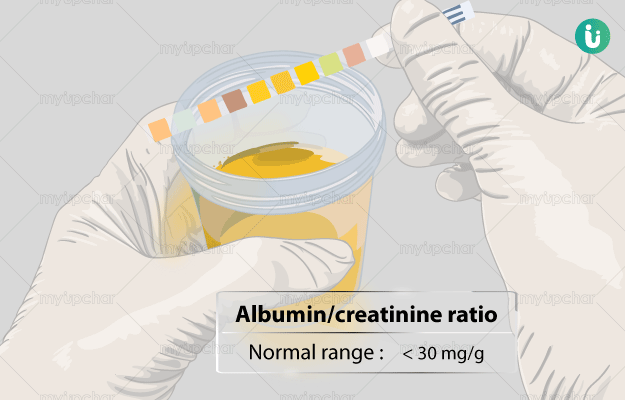What is Albumin/Creatinine Ratio?
The albumin/creatinine ratio is a test that detects small amounts of albumin in the urine. The test is used to diagnose and monitor the progression of kidney diseases.
Albumin is a protein that your body needs for tissue growth and healing. Normally your urine does not have any albumin, though it is found in your blood. If your kidneys are not functioning properly, some amount of albumin may leak into your urine. The amount of urine albumin may vary throughout the day.
On the other hand, creatinine is a waste product of normal muscle breakdown. It is released into the urine at a steady rate. The amount of creatinine present in the urine thus provides a good measure of the normal urine concentration, which can serve as a standard to compare the severity of albumin secretion in the urine. So, unlike an albumin test, the albumin/creatinine ratio provides an accurate measure of the albumin in the urine.
Small amounts of albumin in the urine may indicate early kidney disease. Early diagnosis of kidney disease is important to help treat it successfully and prevent future complications.
Kidney damage may occur due to diseases that affect only the kidneys or due to conditions that affect many parts of the body, like lupus (a disease where the immune system attacks the body’s own tissues) and diabetes. People who have diabetes, heart disease, high blood pressure are at a higher risk of kidney disease.
























